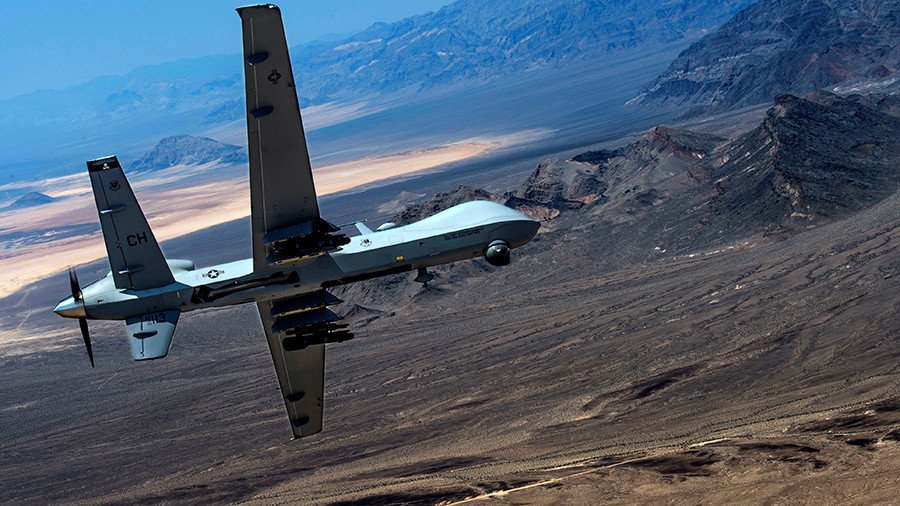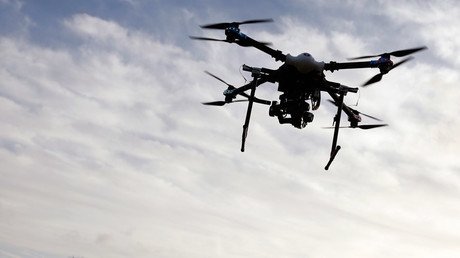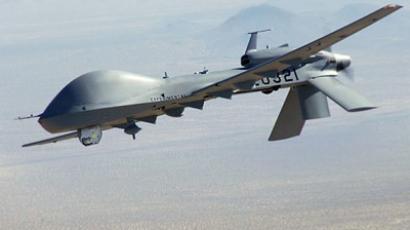US wants to amend arms control agreement to ease export of military drones – report

Washington is seeking an amendment to an agreement limiting the proliferation of delivery systems that could be used to deploy WMD. If successful, it would remove a formal hurdle blocking the global sales of US military drones.
The Missile Technology Control Regime (MTCR) aims to limit the proliferation of delivery systems and sensitive technologies that could potentially be used to launch chemical, biological and nuclear attacks. It was formed in 1987 by the G-7 industrialized countries (Canada, France, Germany, Italy, Japan, the UK, and the United States), currently has 35 nations as members, and is described as an “informal political understanding among states.”
Most restraints are applied to the Category I items, which along with ballistic missiles, space launch vehicles and sounding rockets, also include “unmanned air vehicle systems” that can fly faster than 300km an hour with a 500kg payload.
The limitations, however, are non-binding and countries are only obliged to show “restraint” and expected to behave on a “strong presumption to deny” any transfers of such sensitive technologies.
Nevertheless, the US wants to amend the MTCR agreement to reclassify UAVs that are capable of flying under 650 km per hour under Category II, multiple government sources told Defense News. American officials have reportedly circulated such a proposal in a white paper during the latest plenary session on the MTCR in October, a State Department official confirmed to Defense News.
“I can’t confirm any specific numbers because it’s treated — inside the MTCR — as proprietary, particularly because there’s a deliberative process,” the unnamed official said, declining to comment on the exact speed under consideration. “But I can tell you that speed is the thing that we, based on industry input and all, have looked at. And that’s what we have discussed with partners. And I know other governments are also looking at speed as well, so we’re all sort of coming to a similar conclusion.”
“We don’t want any unintended consequences, so it has to be crafted carefully. We don’t want to inadvertently drop something else out like a cruise missile,” the State Department official added.
Within atmosphere: Drone-satellite hybrids may soon be used for surveillance & communication https://t.co/juZB2iJFT2
— RT (@RT_com) December 3, 2017
If the American proposal is adopted, it will clear the hurdles holding up sales of its military drones to foreign powers. Apart from the drones currently in service, including the MQ-1 Predator, MQ-9 Reaper, and Northrop Grumman’s RQ-4 Global Hawk, the UAVs reclassification would also benefit the development of “cutting-edge rotorcraft that could be modified in the future to be unmanned – a key request of the companies involved in the Future Vertical Lift consortium,” one industry source told the news outlet.
READ MORE: Pentagon plans drone sales to 66 countries
Bell Helicopter and a Sikorsky-Boeing team, who are engaged with US Army’s Joint Multi-Role technology demonstrator program would also benefit from such an amendment. The reclassification, however, would not affect Boeing’s Phantom Ray and Northrop Grumman’s X-47B unmanned combat air vehicles, which are designed to fly at almost supersonic speeds.
While being informal and voluntary, MTCR participation urges self-restraint and obedience to export control policies. Thus, before the US can openly add more drones to its global sales pitch, all 35 members of the Regime will have to consent to the amendments.
















